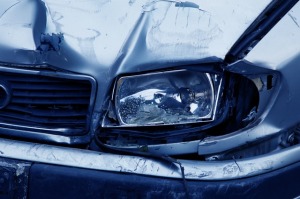- January 5, 2015
- Car Accidents
- Personal Injury
 Our Michigan auto accident lawyers at the law firm of Goodman Acker P.C. recently filed a Detroit car accident lawsuit on behalf of a client that was involved in a "pile-up" rear end collision - meaning a vehicle struck one vehicle directly from behind causing that vehicle to rear end the vehicle in front of them (similar to a "domino" type effect).
Our Michigan auto accident lawyers at the law firm of Goodman Acker P.C. recently filed a Detroit car accident lawsuit on behalf of a client that was involved in a "pile-up" rear end collision - meaning a vehicle struck one vehicle directly from behind causing that vehicle to rear end the vehicle in front of them (similar to a "domino" type effect). Our client is a resident of Dearborn, Michigan. The collision took place in August of 2013 on westbound Ford Road near the intersection of Artesian Street in the City of Detroit.
Our client is a resident of Dearborn, Michigan. The collision took place in August of 2013 on westbound Ford Road near the intersection of Artesian Street in the City of Detroit.As a result of the rear end pile up, our client suffered multiple serious injuries, including but not limited to, lumbar disc herniations, cervical disc herniations, thoracic disc herniations, severe shock, fright, and mental anguish. In addition, our client has been unable to work as a result of his injuries with a potential earning loss in the future.
Our auto accident attorneys filed the lawsuit in the Wayne County Circuit Court and are seeking both first party benefits from AAA Insurance, who has recently cut off his benefits including payment of medical expenses and lost wages, and third party benefits (pain and suffering compensation) against the at-fault driver.
Our arguments for third party benefits include negligence of the at-fault driver (Defendant) in operating a motor vehicle contrary to the Motor Vehicle Act of the State of Michigan, and the ordinances of the City of Detroit. More specifically:
- Defendant was in violation of maintaining an adequate and sharp lookout, nor paid heed or proper attention to the road ahead.
- In violation of Defendant's duty to keep vehicle constantly under control so that that Defendant could bring vehicle to a stop within the assured clear distance, the Defendant did not do so, but instead permitted the vehicle to strike another vehicle. (Violation of MCL 257.627 (4) - explained in greater detail below)
- The Defendant failed to travel at a proper and lawful rate of speed, and therefore traveled at an improper unlawful and excessive rate of speed that permitted the vehicle to not be able to stop within the assured clear distance ahead. (Violation of Michigan Vehicle Act 257.626 Reckless driving on highway, frozen public lake, or parking place)
In addition, the State of Michigan has two special rulings when dealing with rear-end car accidents that can really help when proving a driver who rear ended a motor vehicle is guilty. MCL 257.402 provides that drivers who hit the rear end of a vehicle "shall be deemed prima facie guilty of negligence." What this means is that under Michigan law, there is a presumption that the person who hit the rear end of another motor vehicle is at fault for the accident and guilty of negligence. Of course, the opposing side can rebuttal with testimony, witness statements or other evidence, however more often than not it can be difficult to prove that the driver who rear-ended a car is not guilty.
In addition, MCL 257.627 provides ruling that drivers are not permitted to drive at a speed that is greater of what will allow them to stop within an assured clear distance. Assured clear distance is the distance between the front end and the rear end of a vehicle driving in the same direction. Michigan state law requires drivers to adjust their speed according to factors, such as traffic and road conditions, to ensure they have enough space in between for allowance to stop if need be.
However, even though it is easier to prove a driver is negligent and cause for injury in a rear-end collision compared to other types of motor vehicle accidents, having an attorney on your side for these types of claims is in your best interest. This is because these types of lawsuits do require an in-depth knowledge and understanding of the various driving laws in Michigan. In addition a qualified and experience lawyer will be able to appropriately value your claim determining the fair compensation you deserve and be able to work with the insurance companies to ensure you receive the appropriate no-fault insurance benefits.
If you or someone you care about has recently been injured in a rear-end car accident in Detroit or in the State of Michigan and need help, call our top rated auto accident attorneys today at(248)-483-5000. We offer afree, no obligation case review and will answer any questions that you may have. For over 30 years we have been helping auto accident victims obtain the justice they deserve. We can help you. Call now to understand your rights and find out what you deserve!

